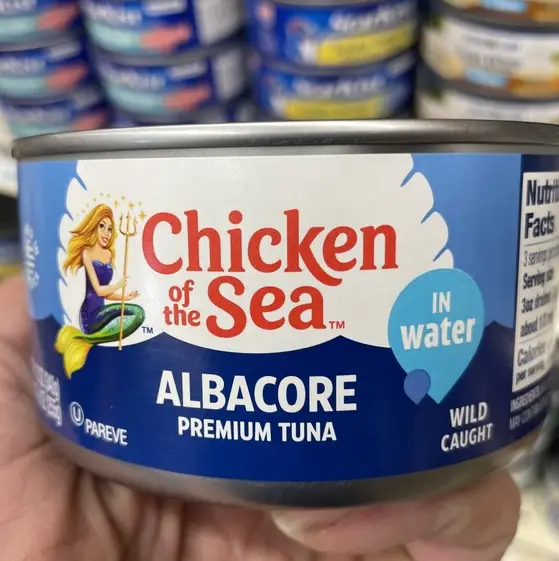Americans consume vast quantities of canned tuna, making it the second most popular seafood after shrimp. But not all canned tuna is created equal. Recent studies and taste tests have revealed significant differences in quality, sustainability, and safety across brands. Understanding which brands to avoid can help you make better choices for your health and the environment.
Major brands with questionable sustainability practices

According to Greenpeace’s latest ranking, major tuna companies including Chicken of the Sea, Bumble Bee, and StarKist received failing scores for their sustainability practices. These brands showed minimal improvement in addressing environmental concerns and ethical sourcing issues.
The use of fish aggregating devices (FADs) and destructive fishing methods by these companies contributes to overfishing and marine habitat destruction. Consumers concerned about ocean conservation might want to consider alternatives that employ pole and line or troll fishing methods.
Brands with poor taste and texture profiles
Blind taste tests reveal several brands consistently underwhelm in flavor and texture. Chicken of the Sea’s reduced sodium variety ranks particularly low, with tasters describing it as bland and dry. Bumble Bee’s Solid White Albacore receives criticism for its sawdust-like consistency.
Safe Catch Elite, despite its mercury testing claims, disappoints with an overly metallic and salty profile. Wild Planet, while sustainable, often presents an overwhelming fishy taste that many find off-putting.
Mercury content concerns in certain varieties

Larger tuna species like bigeye and albacore typically contain higher mercury levels. Brands using these species exclusively, particularly in their “white” tuna products, may pose greater health risks for sensitive populations.
Regular consumption of high-mercury tuna varieties requires careful monitoring. Consider alternating between different types or choosing brands that specifically test for mercury content.
Water packed options lacking flavor
Professional taste tests consistently show that many water-packed varieties suffer from bland, metallic flavors. This processing method, while reducing calorie content, often results in dry, flavorless tuna.
Water-packed varieties frequently require additional ingredients to become palatable, negating their health benefits through added fats and sodium. Some brands compensate with excessive salt, creating an unbalanced product.
Brands with quality control issues

Inconsistent quality plagues several mainstream brands. Issues range from varying chunk sizes to inconsistent liquid content. Some cans contain excessive amounts of water or oil, while others barely cover the tuna.
Manufacturing processes that prioritize volume over quality often result in mushy textures and broken pieces rather than firm, intact chunks. This inconsistency makes meal planning challenging and wastes money.
Excessive sodium content warnings
Many budget brands rely heavily on sodium to mask inferior quality tuna. Regular varieties can contain significantly more sodium than necessary for preservation or taste. This excess sodium makes these products unsuitable for those monitoring their salt intake.
Some brands market “reduced sodium” versions that still contain substantial amounts of salt while sacrificing flavor. Reading nutrition labels carefully reveals surprising sodium levels in seemingly healthy options.
Poor packaging and storage concerns
Certain brands use inferior packaging materials that affect product quality. Dented cans and compromised seals pose food safety risks. Some brands’ pull-tab designs frequently malfunction, leading to potential injuries or spills.
Storage conditions in some retail locations expose tuna to temperature fluctuations, potentially affecting quality. brands without clear expiration dates or lot numbers make it difficult to track freshness and recall information.
Labor and ethical sourcing issues
Industry investigations reveal systemic issues with working conditions and forced labor in some tuna supply chains. Major brands struggling with transparency about their sourcing practices raise ethical concerns.
Companies without clear commitments to fair labor practices or regular supply chain audits deserve scrutiny. Supporting brands with demonstrated ethical sourcing practices helps promote industry-wide improvements.
Making informed choices about canned tuna involves considering multiple factors beyond price. While premium brands generally cost more, their superior quality, sustainability practices, and ethical standards often justify the investment. The worst offenders consistently demonstrate problems across multiple categories, from taste and texture to environmental and ethical concerns. Supporting brands committed to quality and responsibility encourages positive industry changes.

